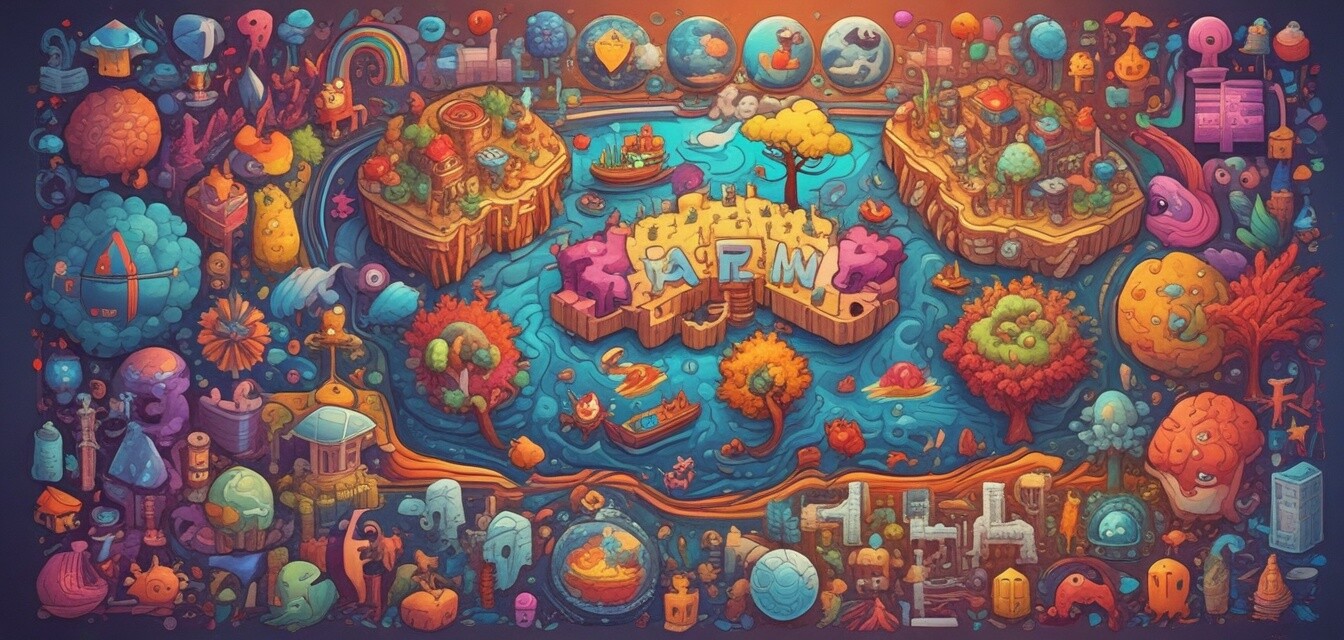
The Best Video Games for Developing Cognitive Skills
Key Takeaways
- Video games can significantly enhance critical thinking and problem-solving skills in children.
- Strategy games promote planning and foresight that are essential for cognitive development.
- Educational games can provide engaging ways for children to learn while playing.
- Cognitive skills developed through gaming can translate to academic success.
- Choosing age-appropriate games will ensure engagement and optimal skill development.
In today's digital age, video games are more than just a source of entertainment; they can also play a pivotal role in developing cognitive skills, especially in children. This guide will explore various types of video games that enhance problem-solving, critical thinking, and strategy development while ensuring fun and engagement. Let's dive into the world of cognitive-enhancing video games!
Understanding Cognitive Skills
Cognitive skills are the mental capabilities that assist in acquiring knowledge, understanding, reasoning, and problem-solving. These skills include:
- Attention Control
- Memory
- Logical Reasoning
- Decision Making
- Problem-Solving
By playing certain video games, children can develop these skills in a fun and engaging way. Let's look at the categories of games that can help in this area.
Types of Video Games That Enhance Cognitive Skills
Puzzle Games
Puzzle games challenge players to think critically and find solutions. They improve problem-solving skills, logical thinking, and in some cases, even pattern recognition. Here are some popular sub-genres:
- Match-Three Games
- Sudoku
- Escape Room Games
Strategy Games
Strategy games require players to make timely decisions, manage resources, and think ahead about their moves. They enhance planning, foresight, and decision-making skills:
| Game Type | Key Skills Developed |
|---|---|
| Real-Time Strategies | Resource Management, Quick Decision Making |
| Turn-Based Strategies | Long-Term Planning, Strategic Thinking |
Simulation Games
Simulation games allow children to experience real-world scenarios in a virtual setting. They help with critical thinking, as players often have to make choices that affect outcomes:
- City Builders
- Life Simulators
- Flight Simulators
Educational Games
These are usually designed explicitly for skill development and can range from math puzzles to science-based games:
- Math Challenges
- Word Games
- History Trivia
Choosing the Right Video Games
It’s important to select games that are suitable for the child's age and interests. Look for games that:
- Encourage creativity and imagination.
- Offer multiple levels of difficulty to match skill levels.
- Include rewarding feedback and challenges.
- Combine fun with learning.
Benefits of Video Games for Cognitive Development
Video games can provide numerous benefits for developing cognitive skills, such as:
- Improvement in memory and recall abilities.
- Enhanced attention spans and focus.
- Boosted creativity through interactive problem-solving.
- Increased adaptability and flexibility in thinking.
- Understanding of cause-and-effect relationships.
Conclusion
Video games, when selected carefully, can be a powerful tool for cognitive skill development in children. With a wide range of genres to choose from, parents can easily incorporate these educational tools into their child’s playtime. The key is to find games that are engaging and challenging, promoting critical thinking and problem-solving in an enjoyable environment.
Tips for Parents
- Limit screen time to ensure balanced play.
- Participate in gaming sessions together to encourage healthy competition.
- Discuss strategies and solutions after gameplay to reinforce learning.
- Explore the various genres available on our Plug & Play Gaming Systems page for engaging options.
- Check out our Buying Guides for more insights on selecting the best games for your kids.
Pros
- Engaging way to develop cognitive skills.
- Variety of genres to cater to different interests.
- Can be played in groups, promoting teamwork.
Cons
- Excessive gaming can lead to distraction.
- Some games may not provide educational value.
- It may be difficult to monitor age-appropriateness.